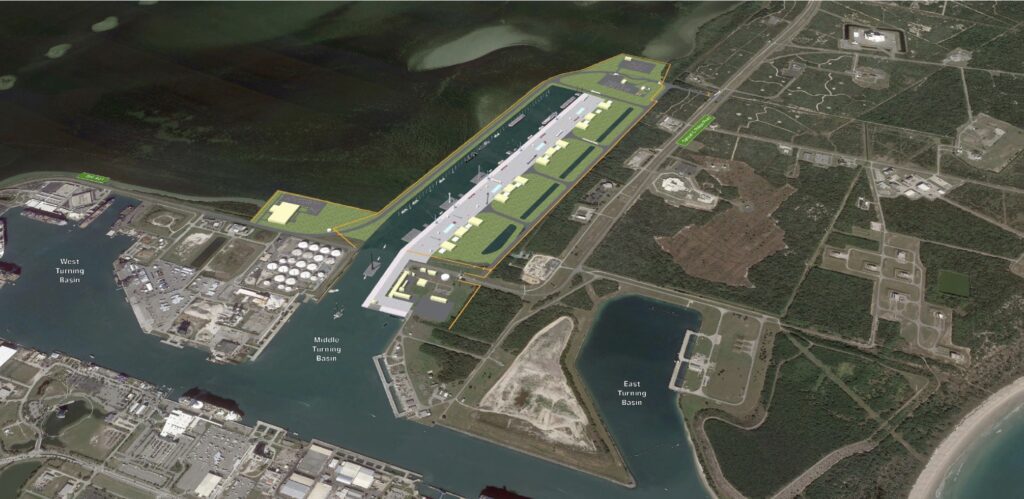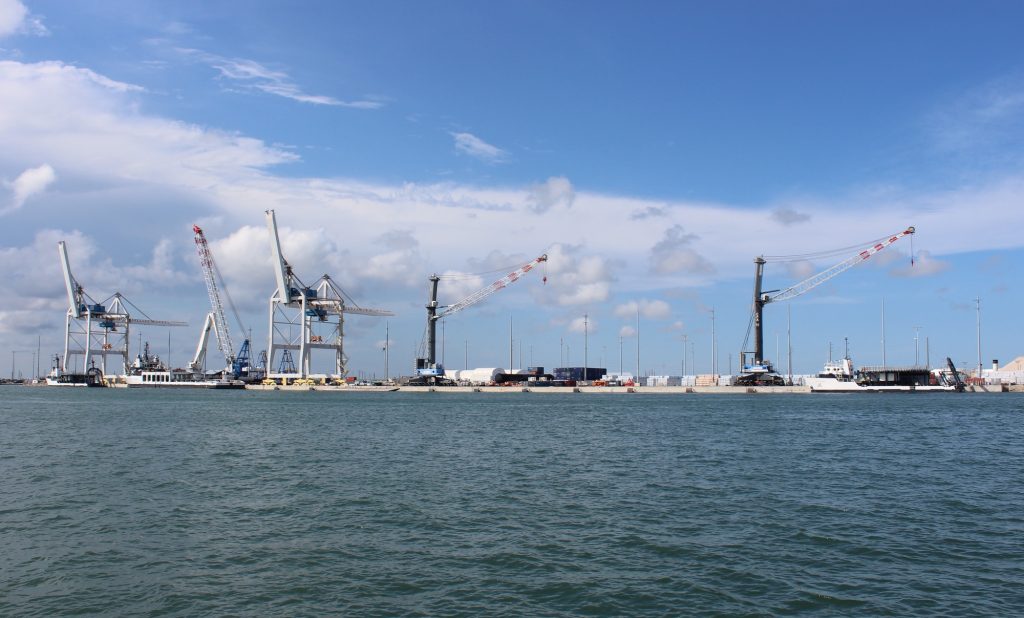ORLANDO, Fla. — A recent research suggests putting over $2 billion into expanding a port next to Cape Canaveral to meet the increasing needs of launch companies there.
The study, released on May 2 by Space Florida, said that current facilities at Port Canaveral are not enough for SpaceX and other companies using the port, just south of Cape Canaveral Space Force Station, to recover launch vehicles and spacecraft. It called for both short-term and long-term expansion of port facilities.
SpaceX currently utilizes the port for its droneships and other vessels used to recover boosters, payload fairings, and Dragon spacecraft, while United Launch Alliance uses the port for delivering launch vehicles made at its Alabama factory. Other launch companies like Blue Origin and Relativity Space are expected to establish operations at the port in the next few years as they introduce their own reusable launch vehicles that will land on ships.
Those companies must compete with other users of Port Canaveral. The port is a major hub for cruise ships, while the U.S. Navy uses part of the port for submarines.
“While Port Canaveral supports the commercial space industry, existing infrastructure does not have capacity to meet the demands of the expected exponential growth in the space transportation industry,” the report concluded, calling it “a pivotal growth constraint.”
The predictions for exponential growth were provided by launch companies. According to the report, the projections went from 197 “recovery/launch operations” involving ships in 2028 to 1,252 in 2073. The report assumed each of those operations would involve four vessels, from droneships to tugboats.
The report suggested upgrades to Port Canaveral in both the short and long term. In the short term, which means in the next 5 to 10 years, it proposed improving part of the port called the Middle Turning Basin, dredging it, and building a new wharf for extra vessels. This was estimated to cost $220 million.
The long-term plan involves a significant expansion of the basin to the north, running parallel to the Banana River, adding a large amount of additional wharf space for support vessels. This expansion, which includes rerouting roads and other infrastructure, would cost $1.9 billion over 10 to 50 years.

The report pointed out that financing this development would need some level of government funding in the form of transportation grants. Without such grants, the fees charged to ships would drastically increase to cover costs.
“In response to market demands from the commercial space and maritime sectors and our U.S. military partners, Space Florida initiated this study to create a unified plan that considers the aspirations and missions of both space and port operations,” Rob Long, president and chief executive of Space Florida, said in a statement.
The organization that runs the port, Canaveral Port Authority, was part of the study and agreed with its findings. John Murray, who is the chief executive of the authority, expressed excitement about working together with government partners to find solutions for the industry's ongoing success.
Space Florida announced its intention to seek financial support from the federal government for port expansion and to gain backing from other port stakeholders. It also mentioned plans for a future study to assess the support that other seaports in the state can provide to the space industry.









